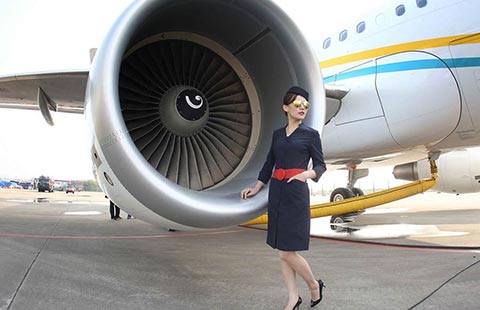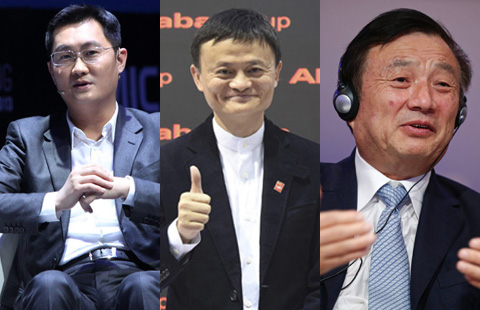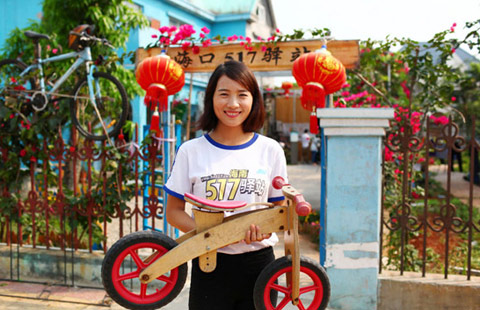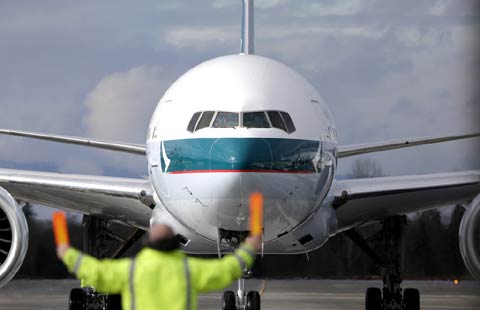Launch of AIIB promises fast track to common development, win-win cooperation
(Xinhua) Updated: 2015-04-15 17:26BEIJING - Welcoming passengers from around the world, an "Oriental Express" train is getting ready to hit the rails toward a destination of common development and win-win cooperation: the Asian Infrastructure Investment Bank (AIIB).
The number of AIIB's prospective founders was finalized Wednesday, as of which, a total of 57 countries have been approved as the founding members of the China-proposed bank.
The bank has received an increasing number of endorsements in Asia and beyond since it was first proposed by the Chinese government around half a year ago.
Its popularity across the world, even among the US allies, should be attributed to its design as an open and inclusive multilateral lender, which promises win-win interactions in the global arena.
The enthusiasm among Western countries to take a ride on this "Oriental Express" train is also due to the understanding that the bank, aiming to complement rather than compete with the existing global financial institutions, would provide them with lucrative business opportunities.
Factors such as China's rich experience in infrastructure development and the enormous gap in funds needed to break the infrastructure bottleneck in Asia play a role here.
The establishment of the AIIB is an attempt to meet Asia's tremendous infrastructure needs. The Asian Development Bank estimated in 2009 that Asia needs about $8 trillion in investment by 2020 to improve the region's battered infrastructure to keep its economies humming.
Poverty reduction is not the first priority of the AIIB, which focuses mainly on promoting economic growth. Instead, the fundamental mandate of the bank is to invest in quasi-commercial infrastructure projects so as to promote regional interconnectivity and mutual access and strengthen the capacity to self-develop.
Meanwhile, the AIIB will uphold high standards as it can learn from the best practices of the existing multilateral financial institutions such as the World Bank and the Asian Development Bank, which have accumulated many good experiences and practices with regards to governance structure, environmental evaluation, procurement, debt sustainability and project management.
The AIIB will uphold high standards and abide by stringent policies to avoid repeating past mistakes, reduce operation costs and increase efficiency.
The World Bank welcomes the AIIB with open arms, pledging to "bring all of its 70 years of experience to helping the bank figuring out what it wants to do."
As a matter of fact, the World Bank has already started cooperation with the AIIB in such areas as institutional standards and framework formulation.
Jin Liqun, secretary general of the interim multilateral secretariat of the China-proposed institution, has said that China and all the members of the AIIB will be committed to building a bank which would be "lean, clean and green."
The cost-effective and highly streamlined institution will have a zero-tolerance policy on corruption and be dedicated to promoting a green and low-carbon economy.
- Too early to fret over AIIB's stake structure
- AIIB founding members rise to 57
- World Water Council, OECD call for global action on financing water infrastructure
- Japan remains ambiguous over China-proposed AIIB
- US adopts new ploy to block AIIB
- IMF chief warns of mediocre growth becoming 'new reality'
- China exports bullet trains to Argentina
- China has reasons to remain optimistic
- Too early to fret over AIIB's stake structure
- Danish PM vows to seize new opportunities amid China's "new normal"
- Chinese firms buys Segway
- Tencent to work with authorities to improve facial recognition for banking use
- Chinese technology spurs Venezuela's economic development
- Chinese investments in Brazil now focused on infrastructure, energy

















